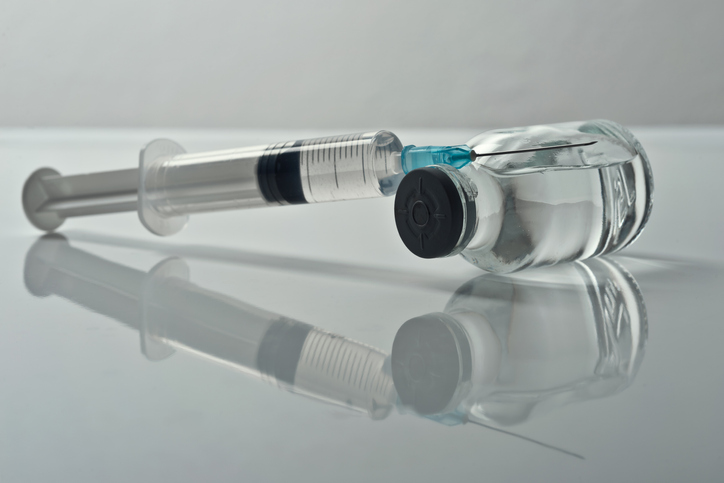Health
BioCryst Acquires Astria for $700 Million to Enhance HAE Treatment Options

BioCryst Pharmaceuticals has announced its acquisition of Astria Therapeutics for approximately $700 million, a strategic move aimed at advancing treatment options for patients suffering from hereditary angioedema (HAE). This acquisition positions BioCryst to potentially outpace larger competitors in the rapidly evolving market for HAE therapies.
Patients currently have access to injectable medications that typically require administration every two weeks to two months to manage HAE, a rare genetic condition that causes severe swelling attacks. The acquisition of Astria, which is developing an innovative injectable kallikrein inhibitor called navenibart, could significantly improve patient care by offering treatment options that may only require two injections each year.
Strengthening the HAE Portfolio
BioCryst, headquartered in Durham, North Carolina, already markets Orladeyo, a once-daily oral medication approved for preventing HAE attacks in patients aged 12 and older. This drug, which generated $437.6 million in sales last year, works by inhibiting kallikrein, a protein involved in the swelling response associated with HAE. With a pending FDA decision expected by December 12, 2023, on an oral granule formulation of Orladeyo for children aged 2 to 11, BioCryst is poised to expand its influence in the HAE market.
Astria Therapeutics, based in Boston, is in the process of conducting a global Phase 3 clinical trial for navenibart, which began earlier this year. The trial includes a placebo-controlled program that tests various dosing regimens, including a 600 mg starting dose followed by either 300 mg every three months or 600 mg every six months. The primary objective is to evaluate the frequency of HAE attacks during a six-month treatment period, with preliminary results anticipated in early 2027.
As BioCryst seeks to establish itself further in the HAE therapy landscape, it faces increasing competition. Takeda Pharmaceutical’s Takhzyro, approved by the FDA in 2018, currently leads the market as a subcutaneous injection administered every two weeks. Additionally, CSL Behring and Ionis Pharmaceuticals recently received FDA approvals for their respective HAE treatments, Andembry and Dawnzera, providing further options for patients.
Potential Market Impact
The addition of navenibart could position BioCryst as a frontrunner in the HAE treatment market. Notably, early Phase 1b/2 trial results indicate that navenibart may reduce the HAE attack rate by an average of 92%, with a reported attack-free rate of 50%. These results exceed those of presently available injectable therapies.
During a conference call on October 14, 2023, BioCryst’s Chief Commercial Officer, Charlie Gayer, emphasized the market’s demand for reduced dosing frequency rather than heightened efficacy in existing treatments. “The market isn’t looking for more efficacy; it’s looking for less burdensome dosing,” he stated. Gayer highlighted that patient interest is significantly piqued by navenibart’s potential for minimal injection-site pain and the convenience of less frequent dosing.
With BioCryst projecting its HAE portfolio could generate $1 billion in revenue by 2029 and exceed $1.8 billion by 2033, the Astria acquisition is a crucial component of the company’s growth strategy. CEO Jon Stonehouse characterized navenibart as a “perfect next fit product for our company,” reinforcing the significance of this transaction.
The terms of the acquisition consist of $8.55 in cash along with 0.58 shares of BioCryst common stock per Astria share, valuing Astria’s shares at approximately $13 each, which reflects a 53% premium over the stock’s closing price prior to the announcement.
BioCryst has also arranged up to $550 million in debt financing through Blackstone, part of which will be allocated to the cash component of the Astria acquisition. The transaction is subject to approval from regulatory bodies and Astria shareholders, with an anticipated closing in the first quarter of 2026. Following the completion of the deal, Astria CEO Jill Milne will join BioCryst’s board of directors, and Astria’s shareholders will hold approximately 15% of the combined entity.
While Astria’s pipeline includes STAR-0310, an antibody aimed at treating atopic dermatitis, BioCryst plans to pursue strategic alternatives for this asset, as it does not align with the company’s focus on rare diseases. Stonehouse remarked on the potential of STAR-0310 but noted it would be better suited in the hands of a company specializing in atopic dermatitis.
The acquisition of Astria Therapeutics signifies a pivotal moment for BioCryst Pharmaceuticals, enhancing its capabilities in the rare disease market and potentially transforming the treatment landscape for patients with hereditary angioedema.
-

 Science4 weeks ago
Science4 weeks agoALMA Discovers Companion Orbiting Giant Red Star π 1 Gruis
-

 Top Stories2 months ago
Top Stories2 months agoNew ‘Star Trek: Voyager’ Game Demo Released, Players Test Limits
-

 Politics2 months ago
Politics2 months agoSEVENTEEN’s Mingyu Faces Backlash Over Alcohol Incident at Concert
-

 World2 months ago
World2 months agoGlobal Air Forces Ranked by Annual Defense Budgets in 2025
-

 World2 months ago
World2 months agoMass Production of F-35 Fighter Jet Drives Down Costs
-

 World2 months ago
World2 months agoElectrification Challenges Demand Advanced Multiphysics Modeling
-

 Business2 months ago
Business2 months agoGold Investment Surge: Top Mutual Funds and ETF Alternatives
-

 Science2 months ago
Science2 months agoTime Crystals Revolutionize Quantum Computing Potential
-

 Top Stories2 months ago
Top Stories2 months agoDirecTV to Launch AI-Driven Ads with User Likenesses in 2026
-

 Entertainment2 months ago
Entertainment2 months agoFreeport Art Gallery Transforms Waste into Creative Masterpieces
-

 Business2 months ago
Business2 months agoUS Government Denies Coal Lease Bid, Impacting Industry Revival Efforts
-

 Health2 months ago
Health2 months agoGavin Newsom Critiques Trump’s Health and National Guard Plans









